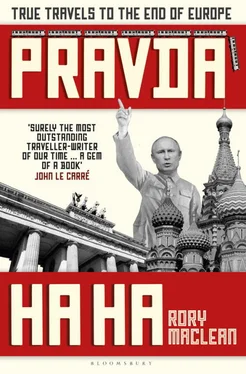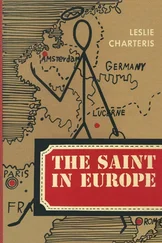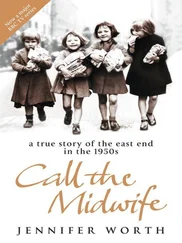All Kaliningrad’s public toilets are illuminated with blue light that makes veins undetectable and so prevents local users from injecting themselves.
Meaning hard-working and ambitious; a paradox, as the Jews of Lviv – which until 1939 had been a city of ‘blurred borders’ and clashing colours, the ‘red-white, blue-yellow and a touch of black-gold’ of Poland, Ukraine and Austria, according to the writer Joseph Roth – were wiped out in the war.
As the former CIA director George Tenet observed, ‘In the current market place if you have a hundred million dollars, you can be your own nuclear power.’ A frugal terrorist shopping for Armageddon can put together a dirty bomb for substantially less outlay.
The Chernobyl nuclear disaster – which irradiated and led to the deaths of tens of thousands – convinced Mikhail Gorbachev of the need for radical political reforms. ‘Chernobyl shed light on many of the sicknesses of our system as a whole,’ he said later.
Little green men – zelyonye chelovechki – were masked soldiers in unmarked green army uniforms who appeared in eastern Ukraine in 2014 brandishing modern Russian military weapons. Putin stated first that the men in green were not part of Russian Armed Forces, then that they were spontaneous ‘self-defence groups’ and finally that they were his Spetsnaz, special forces troops.
In 2015 Orbán’s friends owned some twenty-three Hungarian TV channels, newspapers and other media titles. Today they control more than 500, and have turned public broadcasters into mouthpieces for the government. ‘Thirty years ago we thought that Europe was our future,’ Orbán said recently. ‘Today we believe that we are Europe’s future.’
German reunification was a moment of unique historical significance, wrote historian Ian Kershaw in Roller-Coaster: Europe, 1950 – 2017 : ‘It marked the symbolic end of an era in which the German nation state had first inflicted unimaginable suffering and destruction on Europe, then, divided for forty years, in its western part at least, had contributed greatly to building the foundations of a new Europe resting on peace, prosperity and stability.’
In 2018 the US special counsel Robert Mueller indicted Prigozhin for his role at the Internet Research Agency. Other sources including the Guardian and Buzzfeed linked Prigozhin to a private military contractor known as The Wagner Group (which he denied).
In 1992 former East Germany accounted for only 3.4 per cent of Germany’s gross domestic product. Some 2.5 million state jobs were lost with the ending of the centralised economy and collapse of the old industrial system. The world order that so many had once known ceased to exist. Today after huge inward investment, its contribution to national GDP has risen to about 15 per cent but none of the thirty largest companies listed on the German stock market are yet based in the east.
In the twentieth century, Europe’s two great allies – the UK and US – ‘had saved [Europe] twice from suicide’, wrote Ian McEwan, Milan Kundera, Adam Michnik, Orhan Pamuk, Salman Rushdie and twenty-five other leading writers, historians and Nobel laureates in their 2019 open letter on the rise of populism. But now Europe has been ‘abandoned from across the Channel and from across the Atlantic’ with some Brits and Americans even helping to finance the ‘explosions of xenophobia and anti-Semitism’. ‘Three-quarters of a century after the defeat of fascism and thirty years after the fall of the Berlin Wall, a new battle for civilisation is under way,’ stated the manifesto’s signatories.
At the time no more than 3,000 Syrian refugees lived in Chemnitz, and barely 1,000 Afghans. Yet for over a year, weekly far-right protests have continued in the city, local people venting their anger at being ‘left behind’.
Another critic, the liberal politician Boris Nemtsov – who’d called the president a ‘specialist in lying’ – was assassinated in 2015 on a bridge near the Kremlin. Fresh flowers still appear every morning on the spot where he was gunned down. Every night the police sweep them away.

![Эдвард Докс - Pravda ['Self Help' in the UK]](/books/33503/edvard-doks-pravda-self-help-in-the-uk-thumb.webp)










